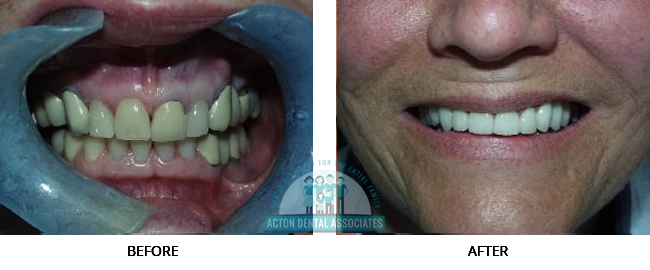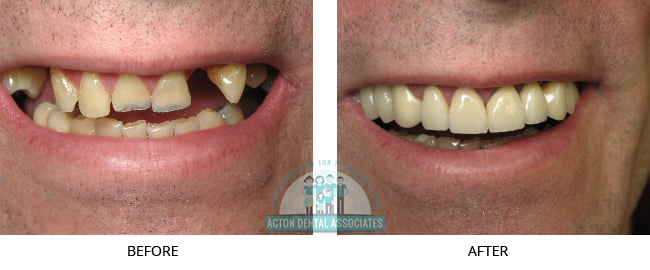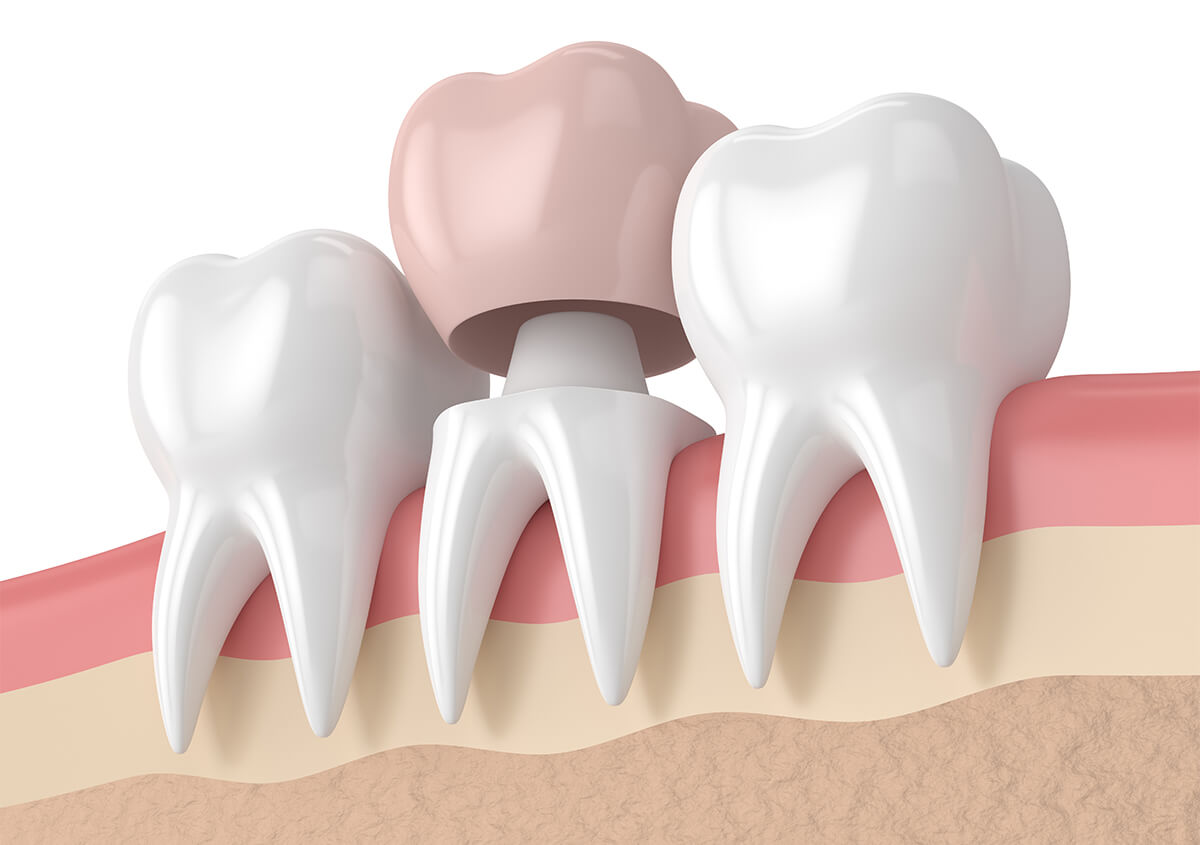Get the royal treatment with quality, durable dental crowns
Crowns present a versatile and straightforward way for our dentists in Acton, Massachusetts, to rebuild portions of lost or badly damaged teeth due to tooth decay, gum disease, and injuries, and other trauma. In some cases, crowns may also be designed, fabricated, and bonded securely in place to cover up imperfectly shaped or stubbornly discolored teeth that detract from the overall beauty and aesthetics of your smile.
A nod to this procedure’s versatility, crowns are also an essential part of tooth replacement. They serve to support the neighboring teeth that hold up a replacement tooth in a dental bridge. Crowns also present the final step in modern or “gold standard” tooth replacement with implants; they restore the implant placed in the jaw and designed to function as a tooth root.
We are materials-agnostic
With that being said, the material used in our practice to restore your tooth is always of high quality. These materials are safe or biocompatible and are both durable and pleasing to the eye. However, we do not limit ourselves to metal-free materials like dental ceramics. We appreciate that some metals are unparalleled in terms of their strength; for instance, gold alloys are unmatched in their ability to withstand the forces from chewing and other behaviors. That makes them an exceptional value. Are you worried about the aesthetics associated with gold? Never fear! Patients may opt for “porcelain pasted on gold.” This alternative combines the best of both worlds: the porcelain that best mimics the appearance of a natural tooth and the gold that best mimics the strength and functionality of natural teeth.
Of course, the type of dental material shaped to make the crown that fits over your tooth depends on many factors, including the extent of damage to the tooth and its location. Our dentists generally practice conservative dentistry. Some dental restorations preserve the natural tooth structure than dental crowns. As an example, you may be a candidate for a dental onlay (partial crown). Onlays do not fit entirely over the top of prepared or reduced natural tooth structure. Instead, they replace damaged areas within the points or cusps of the tooth or at least one of those tips. Onlays are also appropriate for patients who have old or worn-down fillings or would require large fillings. Big fillings do not provide the coverage or support necessary for the long-term health and structural integrity of the tooth.
Regardless of the type of restoration used to rebuild your smile, we use non-invasive and painless technologies and tools to diagnose and plan treatment and for the most pleasant treatment experience possible. Highly accurate and detailed technology further supports the most optimal treatment outcomes. Just be sure to keep up with regular exams and cleanings at our practice. So, you can enjoy your improved teeth for many decades to come!
We are conveniently located near Littleton, West Concord, Concord, Maynard, Westford, Boxborough, Stow, Harvard, and Sudbury, off the Concord Rotary on 179 Great Road, Suite 204 (Route 2A). Call us at (978) 881-5826 to schedule your visit to our office in Acton.
Actual Patients Before and After Results




